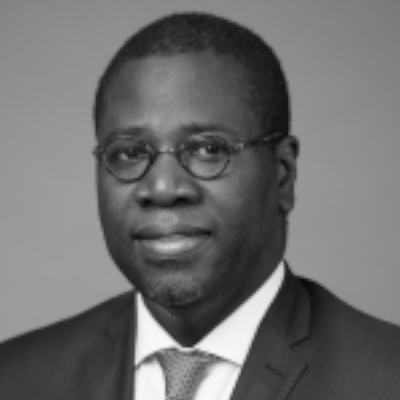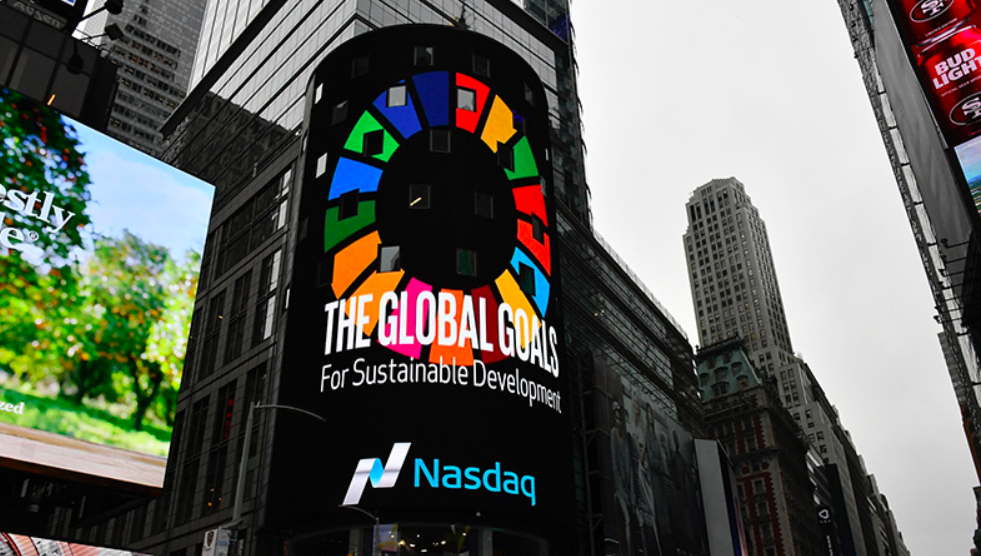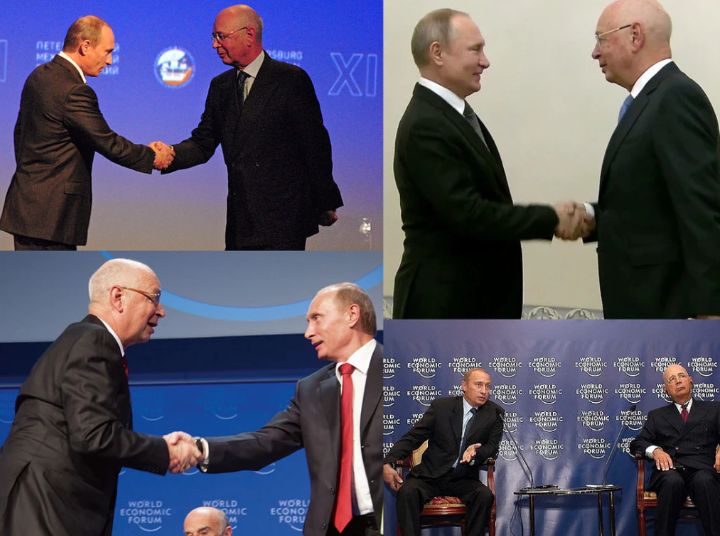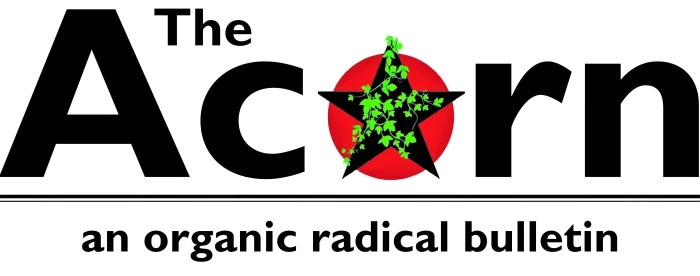Number 73
- London, May 2022: a nest of impact vipers
- Two sides of one system
- Extinction Rebellion: “positive influencers” for billionaires
- On ignorance
- Charlene Spretnak: an organic radical inspiration
- Acorninfo
1. London, May 2022: a nest of impact vipers

We have spent a lot of time over the last few years exposing the activities and agenda of the impact industry.
If you are not familiar with this central plank in the Great Reset agenda, we recommend you look at the analysis and links in our recent article on the financial empire connected to the heir apparent to the British throne.
For those of us who do not move in the high-finance circles of global impact imperialism, it appears almost as an abstract subject, a disembodied economic theory with little connection to the real world.
But, make no mistake, the victims of its ruthless and two-faced “philanthropic” exploitation are very real and will also be very numerous, if this parasitical growth is allowed to take hold of the coming generations of humankind.
The perpetrators are very real, too, even if they take care to mask the true nature of their activities from the general public.
 And on Wednesday and Thursday May 18-19 2022, many of the worst impact vampires will be gathering in London, heart of the impact empire.
And on Wednesday and Thursday May 18-19 2022, many of the worst impact vampires will be gathering in London, heart of the impact empire.
They will be at the Hilton Tower Bridge hotel at 5 More London Place, Tooley Street, London SE1 2BY (next to London Bridge station) to participate in the Impact Investor Global Summit organised by Private Equity International.
We encourage Acorn readers to take a look at details of the event and see for themselves the scope of the impact conspiracy.
But here is a brief glance into the nest of vipers which will be found at the Hilton. [Warning: may induce severe nausea].
Speakers at the event include, in alphabetical order:

Edward Beckley, a partner at TPG, “a leading global alternative asset manager with $114 billion in assets under management”, where he “leads the team investing in the region for TPG Rise Climate, TPG’s dedicated climate impact investing fund“.

Michelle Capiod, co-founding partner of Blume Equity, “a firm investing thematically in sustainable, technology-enabled companies across Europe”, who has “a long background in private equity and venture capital“.

Matt Christensen, global head of sustainable and impact investing at Allianz Global Investors, where he is “responsible for accelerating the growth of Impact Investing“.

Jamie Cooper, portfolio manager at Dream Impact Fund, “one of the worlds first open-ended real estate funds dedicated exclusively to UN Sustainable Development Goal #11 – Sustainable Cities and Communities“.

Philipp Essl, senior social impact director at Big Society Capital, the firm founded by Ronald Cohen. He “lived several years in South East Asia, working with large development organisations (UN, Oxfam) and innovative start-ups on identifying and implementing opportunities for private sector-led economic growth“.

Nneka Eze, a managing director partner at VestedWorld, “a venture capital firm delivering returns in agriculture, consumer goods, and enabling technology with a focus on Ghana, Nigeria, and Kenya“.

Issa Faye, director of sector economics and development impact at the International Finance Corporation (IFC), “a sister organization of the World Bank and member of the World Bank Group” which is “the largest global development institution focused on the private sector in emerging markets”.

Borja Garcia Fernandez, head of structuring at Citi Social Finance, who previously spent “some years structuring impactful transactions across the financial services sector in Africa and South Asia“.

Michele Giddens, co-founder (with Ronald Cohen) and co-CEO of Bridges Fund Management, who has “played a key role in the growth of the impact investing movement in the UK”.

Sarah Gelfand, managing director of “impact verification” business BlueMark and “one of the impact investing market’s early pioneers”.

Cyril Gouiffès, head of social impact at the European Investment Fund, where his “entire career” has been “dedicated to impact related activities“.

Maria Kozloski, senior vice president of “innovative finance” at The Rockefeller Foundation, previously at IFC (International Finance Corporation), arms dealer Lockheed Martin and The World Bank.

Yasemin Saltuk Lamy, deputy chief investment officer at CDC Group, the UK state’s development finance institution, formerly of JPMorgan where she was a founding member of its impact investment business.

Tai Lin, managing partner of Proterra Investment Partners Asia (“Proterra Asia”), the Asian arm of “a global alternative asset manager focused on the food and agribusiness industries with US$ 3.7 billion of assets under management”.

Sugandhi Matta, chief impact officer at Singapore-based ABC Impact, where she aims to “deliver measurable, positive impact alongside compelling financial returns“.

Fabienne Michaux, director of SDG Impact, part of the UNDP Sustainable Finance Hub, which “works to accelerate private sector contributions towards the achievement of the SDGs by 2030”. She is a Working Group Member of the G7 Impact Taskforce.

Carlos Reyes, managing director at Palladium Equity Partners, a New York Private Equity Firm with US$3.3 billion of assets under management, formerly a senior member of IFC Asset Management Company (AMC), a division within World Bank – International Finance Corporation “investing in equity projects within Emerging Markets”.
Hiding behind the do-good rhetoric of the UNSDGs, these individuals are all working actively for the loathsome Great Reset agenda of global land-grabbing and the total surveillance and control they need for the digital enslavement of our children and our children’s children.
If you happen to be in London on May 18 or 19, why not pop in to the hotel and say a friendly “hello”?


It has been obvious right from the start that there is something decidedly fishy about the war in Ukraine.
The wall-to-wall media hysteria and censorship is enough on its own to point us in that direction.
Our intuition tells us that we are enduring yet another spectacular event meant to “change everything” and push us still further into the nightmare prison-world the venal ruling mafia are intent on building.
As ever, there are the little details that further give the game away, not least the use of demonstrably fake accounts and images designed to depict a reality that evidently does not actually exist.
As our special correspondent so astutely pointed out on March 9, the conflict is clearly another phase in the Great Reset process.
It is aimed at advancing every aspect of the agenda advanced by Klaus Schwab, Prince Charles and the rest of the Sustainable Development Goals gang.

While the geopolitical conflict of interests between NATO and Russia has been widely examined, it is more difficult to discern what Iain Davis of In This Together describes as “the globalist forces that are both ripping Ukraine apart and propelling Russia to act”.
He promises to do so in the next installations of his invaluable series of articles, Ukraine War! What Is It Good For?, which should be fascinating reads.
But in the meantime it is worth quoting at length what James Corbett wrote as early as February 27 about the tendency to see unfolding history in binary terms, the “good guys” and the “bad guys”.
While gullible TV viewers are tricked into thinking Russia is an evil empire and Ukraine/NAT0 are the source of all goodness in the world, dissidents can fall into the trap of simply taking a mirror-image stance, he warns.
“If you’ve been listening to me over the last decade and a half you will know that it’s not that easy. The BRICS are controlled opposition. Putin and Xi are both tyrannical thugs. The Chinese government and the Russian government both love controlling their citizens’ every thought and speech and action, and their supposed opposition to the globalist empire is a smoke-and-mirrors distraction hiding the fact that they are absolutely on-board with the ultimate agenda of world control.
“Are you the type of person who watches the clip of Schwab bragging about all the cabinets the World Economic Forum has ‘penetrated’ around the world without noticing that the second person he lists in his stable of WEF acolytes is Vladimir Putin?

“Are you the type of person who conveniently forgets how to read when Xi and Putin release documents extolling the creation of the New World Order that call on all states ‘to protect the United Nations-driven international architecture’ and declare that ‘In order to to accelerate the implementation of the UN 2030 Agenda for Sustainable Development’, states will have to ‘take practical steps in key areas of cooperation’ like ‘vaccines and epidemics control, financing for development, climate change, sustainable development, including green development, industrialization, digital economy, and infrastructure connectivity’?
 “Are you the type of person who constantly forgets that Vladimir Putin is close personal friends with Henry Kissinger?”
“Are you the type of person who constantly forgets that Vladimir Putin is close personal friends with Henry Kissinger?”
More light is shed on this issue in an interesting panel discussion hosted by OffGuardian.
Here, Davis is joined by former RT journalist Riley Waggaman (Edward Slavsquat) in arguing that even if the Ukraine war represents a real geopolitical conflict between two rival blocks, these blocks are still part of one system, which seeks to impose, globally, the digital slavery of the Fourth Industrial Revolution.
As Waggaman says: “I really disagree with this idea that somehow Russia and China can use technocracy for good”.
3. Extinction Rebellion: “positive influencers” for billionaires

Exactly three years ago we published a shock article exposing the business interests lurking beneath the fake-green surface of the UK’s Extinction Rebellion.
That moment seems a long time ago now and, looking back, was just the start of a painful journey of discovery.
After the initial confusion surrounding the Covid coup two years ago, it soon became apparent that this was simply an accelerated form of the sinister corporate agenda we had already identified.
It was increasingly obvious that all the threads of propaganda built around the UN/WEF Sustainable Development Goals were part of the one Reset rope with which the ruling global mafia aimed to bind and enslave humanity.
It is therefore interesting, three years on, to receive, via a fellow campaigner, confirmation of Extinction Rebellion’s role within this vast criminal conspiracy.
This comes in the form of the SustMeme Climate & Energy Top 500, which is a “Global ranking of Top 500 positive influencers active on Twitter in Climate Science & Forecast, the Carbon Economy, Emissions, Clean, Green & Renewable Energy, Generation and Efficiency, Monitoring, Metering + Smart Solutions, from Policy to Practice”.
 This is published every week by McClelland Media Ltd in association with Mitsubishi Electric (“Changes for the Better“), the Japanese industrial giant with interests in electric cars and nuclear power.
This is published every week by McClelland Media Ltd in association with Mitsubishi Electric (“Changes for the Better“), the Japanese industrial giant with interests in electric cars and nuclear power.
SustMeme laughably claims to present “independent journalism”, while at the same time announcing a new series of articles, “each published in association with a Sponsor Partner”.
This “association” costs “£1100.00 (+VAT) per article” or “£2970.00-£4675.00 (+VAT) per series”, we learn.
Clearly we are very much in commercial territory here, as reflected by the fact that number one in the “positive influencers” rankings for the week of April 19 2022 is Simon Holmes à Court (“data-driven energy transition specialist: sharing knowledge, informing opinions. change is inevitable: it’s just a question of speed”), an Australian businessman and political move-and-shaker, the son of Australia’s first billionaire Robert Holmes à Court.
This impression is further confirmed by the fact that second and third places in the rankings are occupied by billionaire Elon Musk and his firm Tesla (“electric cars, giant batteries and solar”).
Now what possible financial interest could he have in promoting “climate justice”, we wonder?
And in fourth place we find our old friends at Extinction Rebellion, still merrily hijacking the genuine environmental concerns of their supporters to serve as “positive influencers” for a bunch of billionaire sharks.
We don’t propose to go through all 500 chart-topping climate propagandists, but a few names stick out.
 In 16th place we find Guardian journalist George Monbiot, liberal gatekeeper and all-round shill for the system.
In 16th place we find Guardian journalist George Monbiot, liberal gatekeeper and all-round shill for the system.
Monbiot declared in a January 2020 article plugging lab-grown food: “We are on the cusp of the biggest economic transformation, of any kind, for 200 years”.
What made you think that, George?
Greta Thunberg (“the billionaires’ favourite” as we called her in December 2019) doesn’t seem to be the influencer she once was, featuring only in 28th place.
Greenpeace are in there, of course, together with Bill McKibben, the United Nations, Ségolène Royale, Al Gore, We Mean Business and those well-known environmentalists at BP.

Plus there’s Naomi Klein, in 46th spot, the psuedo-radical now exposed as a cynical and hypocritical participant in the “shock doctrine” she once warned against.
As we wrote in May last year: “If Klein and her accomplices were really interested in protecting nature and traditional ways of life, then they would not be promoting the ‘tools’ of the next phase of industrial repression and destruction.
“Instead, they are using the very real environmental crisis, and people’s very real concerns about it, in order to garner support for a political manoeuvre motivated by the potential for financial gain”.
In 61st place sits Christiana Figueres, the daughter of a CIA-backed Costa Rican president whose dubious connections we exposed in April 2019.
And to complete the Winter Oak bingo card, we find in 145th place Rob Hopkins, the “transition” guru whose adherence to the Great Reset agenda was dissected in this 2020 piece.
The business behind the SustMeme rankings, McClelland Media Ltd, is headed by Jim McClelland, who likes to describe himself as a “Sustainable Futurist” and, of course, an “influencer“.
He is proud to have worked with “blue-chip corporates and global brands, plus public bodies, ranging from The Gap and Ford Motor Company, through Siemens and SUEZ, WRAP and ING, Marks & Spencer, Avery Dennison and Tetra Pak, to ENI, E.ON, JLL, plus Mitsubishi Electric“.
He is also a contributing author on the “influential” Circularity Gap Report, presented each year to Klaus Schwab’s World Economic Forum at Davos.

by Elise Sachs
Lately I have been thinking a great deal about ignorance. Even before I read Stephen Harrod Buhner’s narrative on the topic (strongly recommend you take the time to read in full. It is that good and more worthwhile than just about everything else people are stuffing into their craniums these days).
My father was highly educated, a professor, in fact, of ‘education’ at a rather well-known US university (the ‘Ivy league of the West’). As a child and young adult, this impressed me.
As a wizened-good-witch-in-the-making, one who is truly hoping to become as aware as possible (though not via the standardly accepted paths toward witch-like enlightenment) it has become transparent how profoundly ignorant he was (I can feel his bones and ashes shifting as I write these words).
Ignorance and education in the world today rather often go hand-in-hand. Schools, colleges, universities all have curriculums and agendas designed to create willing participants in the artificial, capitalistic, materialistic world which we have superimposed on top of the real world which we have destroyed and buried underneath; the real world being the living, breathing, feeling, thinking, exceptionally aware entity we refer to as the planet Earth.
 Nothing stays buried forever however; this we are seeing daily in the escalating catastrophes, human and Earth generated alike.
Nothing stays buried forever however; this we are seeing daily in the escalating catastrophes, human and Earth generated alike.
Quite likely my whole life, though increasingly more these last seven or so years during what might be referred to this spell of Swedish isolation, I have been rather integrated with, and perceptive of, Gaia, the real Earth.
Seeing behind and beyond the artificiality, through and into the background, which is what is real, seems to be a gift with which I am blessed (though it is not often the most comfortable ability to be endowed with).
I have always found the human-created world to be rather wrong, strange, alien; it has never felt quite authentic. Because it is, in actuality, not.
Buhner speaks quite beautifully about ignorance and how our continued amassment of information, from the perspective which we have been approaching ‘education’, will continue to make everything worse, as it has and continues to do.
Our learning systems really need to be scraped, leveled to the ground (as is true of pretty much every institution and industry that we have built up around us in the names of Progress, Power and Profit) and re-fashioned from a place of humility.
That is, nothing will get any better if we do not both acknowledge this ignorance and also realize that it is quite ok as long as we accept, via humility, our place in the matrix and not to extend beyond that scope.
Buhner, speaking on ignorance… “We humans (have) to realize that we are ignorant, that we understand less than one percent of what goes on here when it comes to Earth, to the plants, to the nature of this scenario in which we are embedded and from which we come” … and, I would add, the Universe at large and beyond…
“I was using the word (ignorant) in a much larger context, as the descriptive of an irremediable condition, a limit that cannot be corrected when it comes to our understanding of the natural world.

“As well, I was looking at the harm that comes to us and the planet when that limit is not recognized. It was and is a confrontation of the limits of rationality and science and their claims that control of the natural world is possible.
“Accepting our ignorance as truth, as an ultimate limit, forces a change in behavior. If understood to be foundational it necessitates approaching the world with humility, forces us to recognize that our attempts to control nature will always result in unforeseen side effects that make everything we do turn out all wrong”.
Every “fix” we are doing at the moment is just a variation on theme(s) we have put in place. Especially those in the name of sustainability. That word is as empty in authenticity as ‘green’.
My friend Judith, after reading Buhner’s article, wrote these words, simple and profound. “Once again, we are involved in the knowing/learning/schooling conundrum. The words used are really irrelevant to the basic sense of earth/world/life and our truest relationship to it”.
Indeed.
5. Charlene Spretnak: an organic radical inspiration
The latest in our series of profiles from the orgrad website.

“Rapacious industrialism, whether capitalist or communist, is embedded within the values of modernity”
Charlene Spretnak (1946-) is a writer, speaker and activist on cultural history, social criticism, spirituality and art.
She is a notable critic of the mechanistic worldview which has developed with industrial capitalism and shaped contemporary systems of knowledge in her native USA and elsewhere.
Spretnak, like Renaud Garcia, extends her criticism to deconstructionist forms of postmodern thinking which insist “there is no ‘real’”, but only social construction. (1)
Against that she puts forward a radical organic philosophy which recognises humanity and its culture as belonging to a holistic all-embracing living physical reality.
 Spretnak wrote in her 1997 book The Resurgence of the Real: “All human thought, social or individual, is also situated in the processes of body, nature and place”. (2)
Spretnak wrote in her 1997 book The Resurgence of the Real: “All human thought, social or individual, is also situated in the processes of body, nature and place”. (2)
Like Michael Löwy, she also offers a fascinating ideological overview of the way in which radical organic philosophy surfaces from time to time in history, only to be forced underground again by the dominant system.
She argues: “A substantive tradition stands behind the contemporary resurgence of body, nature, and place, which, if better understood, could be a source of inspiration.
“That lineage includes the Romantic movement, the Arts and Crafts movement, the cosmological and spiritual quests in schools of painting, the counter-modern Modernists, Gandhi’s Constructive Program, and the counterculture”. (3)
Spretnak explains that repression of these critiques of modernity is achieved partly through the way the historical myth of “progress” is presented.
She writes: “The complex transition from the holistic (but hierarchical) medieval worldview to the modern mechanistic one came to be expressed as a simplistic reduction holding great allure: the passage from the Dark Ages to the Enlightenment. Has there ever been such a starkly black and white framing of history?” (4)
 Instead, she describes four major stages in the development of the modern world and its fragmented thinking: the Renaissance, the Reformation, the Scientific Revolution and the Enlightenment, at which point “the human being was now seen as a biomechanical machine, as was the entire universe”. (5)
Instead, she describes four major stages in the development of the modern world and its fragmented thinking: the Renaissance, the Reformation, the Scientific Revolution and the Enlightenment, at which point “the human being was now seen as a biomechanical machine, as was the entire universe”. (5)
Spretnak tackles head-on the disingenuous argument that because the rhetoric of the German Nazis included a certain rejection of the modern world and valuing of nature, all such views now represent a slippery slope to fascism.
She explains: “In Germany today, members of the left and other rationalists, for instance, insist that Nazism resulted from ‘the natural progression of capitalism’ plus the influence of ‘the irrational’ (spiritualities that honored nature, body and community in ways that replaced rational politics).
“Therefore, any talk of spirituality or a social dimension of nature will lead us straight back to fascism, according to these ‘politically sophisticated’ analysts.
“I find it fascinating that an analysis with such a gaping hole at the center could gain such popularity, much like the similar conclusion that opposition to modernity is inherently reactionary and leads to fascism.
 “Both of these conclusions ignore the ways in which people’s discontents with modernity were used by the Nazis in their quest for domination.
“Both of these conclusions ignore the ways in which people’s discontents with modernity were used by the Nazis in their quest for domination.
“All concerns about modern life were supposedly resolved by National Socialism. The concerns themselves and the articulation of them did not ‘lead to fascism’.
“Rather, fascism triumphed because sufficient numbers of people enthusiastically accepted one cynical party’s ideological response to those concerns”. (6)
In a 2006 interview, Spretnak described how her work has sought to show that modernity has constructed a system of assumptions to deflect criticism.
She explained: “In addition to identifying the crises of modernity – particularly in the areas of economics, politics, and education – as well as the corrective efforts that are emerging now, I sought to clarify the conceptual infrastructure of modernity, that is, its interlocking systems of beliefs and assumptions.

“You’d be surprised how many people are oblivious to that ideology, even though it shapes our socialization from day one and all our institutions. We’re taught to regard it as ‘just natural’ for an advanced civilization.
“Ecological activists, for instance, are often puzzled to find that their efforts seem to bounce off a brick wall; that’s because they’re deflected handily by the ideologies of modernity – not corporate capitalism alone. On the contrary, rapacious industrialism, whether capitalist or communist, is embedded within the values of modernity.
“I explain how that entire worldview – and the ‘modern condition’ – came to be. Needless to say, it’s a somewhat different version than we received in modern schooling”. (7)
Asked to explain what these modern assumptions were, she replied: “A core assumption of modernity is that the human is essentially Homo economicus. Consequently, the structure and quality of all other endeavors in life are thought to derive from the economics of a society.
 “‘Unfettered’ economic expansion, through industrialization and computerization, is believed to yield abundance, well-being, the solution to social problems, and the evolution of culture and society”.
“‘Unfettered’ economic expansion, through industrialization and computerization, is believed to yield abundance, well-being, the solution to social problems, and the evolution of culture and society”.
She warned: “In light of the deeply held modern belief that society progresses in opposition to nature, it’s extremely difficult for voices for ecological sanity to capture the public attention for a sustained corrective effort”. (8)
Spretnak has a strong interest in the 19th century organic radicalism of John Ruskin and William Morris, whose work she discovered by chance while visiting England.
In The Resurgence of the Real she describes “an extraordinary period of discovery for me, a communion that shaped me, somehow, from then on”. (9)

She said in the interview: “Ruskin, the preeminent art critic of Victorian England, and Morris, who was greatly influenced as a young man by Ruskin’s writings, were profound eco-social philosophers and activists who refuted the destructive assumptions of modernity and created alternatives, quite in sync with the orientation I call ‘ecological postmodernism’.
“They went far beyond an economic analysis and countered the corrosive effects of the modern project by focusing in immediate and accessible ways on work, home, art, nature, vernacular culture, and the unfolding of persons in relationship”. (10)
Spretnak champions holistic and relational thinking and in a 2014 talk in New York (11) identified a number of early 21st century medical findings challenging the prevailing view that the human organism is nothing more than a very complicated bio-machine. These discoveries, she said, showed dynamic interrelationship playing a more important role.
Direct or observed violence in childhood, for instance, shortened life expectancy. Other research had showed that closeness to nature was related to better physical health.
Her other books include Lost Goddesses of Early Greece: A Collection of Pre-Hellenic Myths (1978), States of Grace: The Recovery of Meaning in the Postmodern Age (1991) and Relational Reality: New Discoveries of Interrelatedness That Are Transforming the Modern World (2011).
Video link: Charlene Spretnak – Dynamic Interrelatedness (20 mins)

1. Charlene Spretnak, The Resurgence of the Real: Body, Nature, and Place in a Hypermodern World (New York: Routledge, 1999), p. 5.
2. Spretnak, The Resurgence of the Real, p. 4.
3. Spretnak, The Resurgence of the Real, pp. 134-35.
4. Spretnak, The Resurgence of the Real, p. 44.
5. Spretnak, The Resurgence of the Real, p. 56.
6. Spretnak, The Resurgence of the Real, pp. 61-62.
7. Wild Duck Review: Interview with Charlene Spretnak by Casey Walker,
http://healingfromwhiteness.blogspot.com/2006/02/wild-duck-review-interview-with.html
8. Ibid.
9. Spretnak, The Resurgence of the Real, p. 214.
10. Wild Duck Review.
11. Charlene Spretnak: Dynamic Interrelatedness,
https://www.youtube.com/watch?v=0zTTbd1bgM0
“The left has turned its back on liberty. Worse yet, the left now campaigns against freedom. This has devastating social, political, and economic consequences; and the left’s failure to acknowledge and understand this will haunt it for years after the pandemic”. So writes Christian Parenti in a powerful piece on The Grayzone site.

* * *
“The first phase of the Obedience-Prison-Conformity experiment is over. How’d you do? If you ever wondered how you would have behaved in Nazi Germany, Stalinist Russia, Mussolinian Italy, Ceaușescuian Romania, or China (Maoist or contemporary), now you know”. A razor-sharp analysis of the psychology of the Great Reset, with several pertinent videos, from blogger Margaret Anna Alice.

* * *
The transhumanist agenda of the Great Reset was already being developed by the US government 20 years ago, an archived document reveals. Entitled “Converging Technologies for Improving Human Performance”, the 2002 report enthuses over the idea of combining nanotechnology, biotechnology, IT and cognitive science so as to create “the realignment of traditional disciplinary boundaries… in working habits, in economic activity, and in the humanities”.

* * *
Ghislaine Maxwell, accomplice of paedophile sex trafficker Jeffrey Epstein, comes under close scrutiny from investgative journalist Whitney Webb in this Unlimited Hangout article. She describes Maxwell’s role at the centre of the influence operation and web of businesses, linked to organized crime and intelligence, which had been set up in New York City by her father Robert Maxwell before his death in 1991.

* * *
A series of informative podcasts has been produced on “the globalist predator class and how its agendas are aided and abetted by governments and corporate media” by Jesse Zurawell, an independent writer and researcher.

* * *
“The elite have grown tired of pretending to care about the rest of us. They are getting on with their plans and making no more secrets about it”. In this article, Karen Hunt looks at the unprecedented attacks on democracy, civil liberties, and personal freedoms being carried out under the Great Reset.

* * *
Our friend Crow Qu’appelle of Nevermore Media discusses anarchy, anarchism and universal truth in an interview with Tim Foyle, here and then here.

* * *
“As one of the greatest injustices unfolds and courageous journalism is buried, listen to the silence of journalists and of those you elect – especially in Julian Assange’s homeland, Australia. Speak out now before it’s too late”. This was the April 20 plea from veteran investigative journalist John Pilger after an order by a UK court took WikiLeaks founder Julian Assange a step closer to being extradited to the United States on “spying” charges.

* * *
“Modern man, instead of attempting to raise himself to truth, seeks to drag truth down to his own level”. René Guénon, The Crisis of the Modern World.

(For many more like this, see the Winter Oak quotes for the day blog)
—–
If you like this bulletin please tell others about it. Subscribe by clicking the “follow” button.
—–
Back Issues
Follow Winter Oak on Twitter at @WinterOakPress

Even Julian assange serves the system. Before he was imprisoned, he had said numerous times that investigating what really happened on 911 is not important.
One video of him saying this in response to a question of 911…
And here more about these Emmanuel Goldstein’s.
https://wikispooks.com/wiki/Document:How_to_identify_CIA_limited_hangout_operation
Chomsky, Chris hedges, and Naomi Klein have done a 180 from what they pretended to care about.
It’s a deep system that not only tells people what to say, but makes them internally change their morals in order to profit from the future.
In other words, these former heroes sold out.
We also need to start questioning the foundations of pharma and medical research…
https://drsambailey.com/covid-19/why-nobody-can-find-a-virus/
And https://viroLIEgy.com
Otherwise we will keep getting dragged into this bio medical system that rarely cures, but seeks to keep “treating” us.
LikeLike
Agree about the others but if Assange is working for “them” they have a funny way of thanking him! It seems possible that he dodged the 9/11 issue in order to avoid being smeared as a “conspiracy theorist”, but who knows… It also seems possible that, now that this fake-radical “limited hangout” ruse is more widely understood, it could be turned around to be used as a contrived smear against genuine dissidents, cutting them off from what should be their support. In this way, the system could attack a radical opponent from a position which appears to be even more radical, thus disgusing the true nature and origin of this attack. It does this quite a lot, in fact.
LikeLike
In this site in spanish, it’s been published articles form winter oaks
https://terraindomita.blackblogs.org/?s=winter+oak
It’s seems that the point of view about the actual pandemic world is similar in both sites
LikeLiked by 1 person
Thanks for the link
LikeLike
My principal objection to Naomi Klein and her ilk are that their opposition to Big Pharma is based on the profits, but not on the products, that those companies produce. ‘Poisons for All’ is the agenda that Naomi Klein and her ilk would like to inflict on humanity, that we all have the ‘opportunity’ to be injected with toxic ‘vaccines’ in the supposed name of ‘health’.
LikeLiked by 1 person